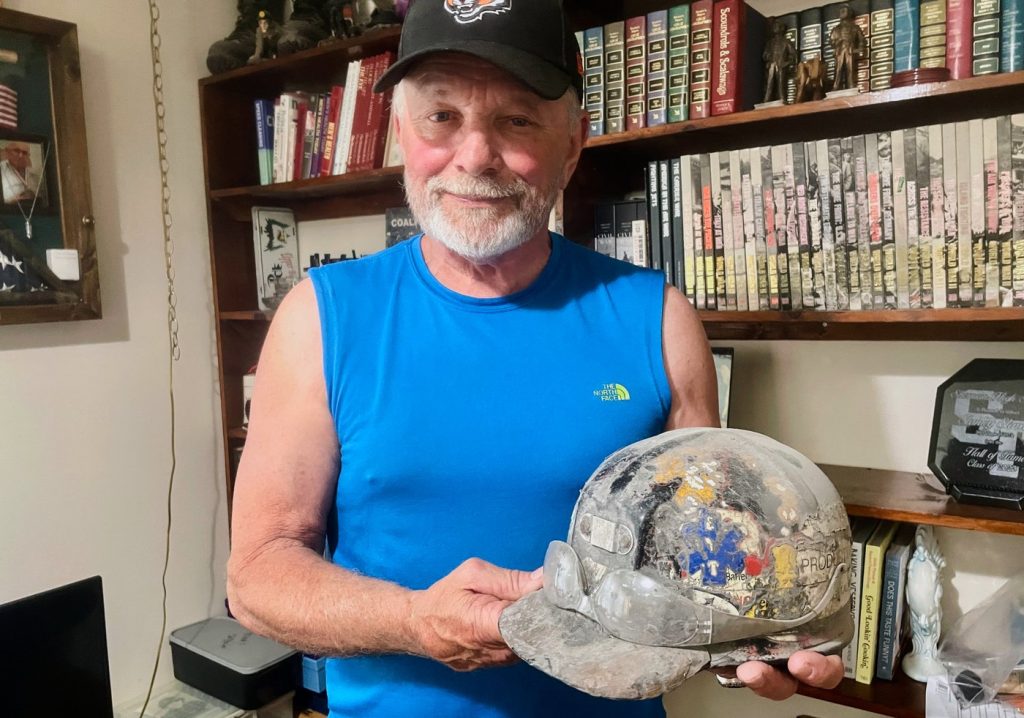CHARLESTON, W.Va. — Retired coal miner Stanley “Goose” Stewart has raised concerns about the safety of the coal mining industry in the wake of budget cuts affecting the Mine Safety and Health Administration (MSHA). The agency, responsible for enforcing mine safety laws, is facing significant downsizing as part of a broader initiative launched by President Donald Trump and overseen by Elon Musk. This initiative has targeted federal agencies for cuts, including the termination of leases for several MSHA offices.
Stewart criticized the proposed changes, labeling them “idiotic” and suggesting they would enable coal companies “to do as they please.” He highlighted the importance of safety laws and their enforcement, particularly in the context of his experience during the Upper Big Branch mine explosion in southern West Virginia fifteen years ago, which claimed the lives of 29 of his co-workers. Following the tragedy, Stewart chose to leave the mining industry, opting instead to focus on activities such as hunting, fishing, and gardening.
The political landscape surrounding coal mining in West Virginia has seen significant shifts. After the 2016 presidential election, Hillary Clinton faced backlash for her comments regarding a transition away from carbon-based fuels, which miners interpreted as a threat to their jobs. Conversely, Trump positioned himself as a proponent of the coal industry. While jobs in mining have not rebounded, West Virginia has increasingly leaned towards Republican support in subsequent elections.
Proponents of the coal mining industry argue that state governments can effectively manage mine safety, despite the presence of federal inspectors. Some lawmakers in West Virginia’s Republican-majority have sought to limit the enforcement authority of state inspectors, citing the existence of federal oversight. They point to a decreasing number of mining fatalities alongside the decline of coal production in the region.
State lawmaker Tom Clark, a former MSHA inspector, expressed that he does not see safety as a concern as long as inspectors are reallocated to other offices. However, he also called for continued funding for black lung disease benefits and emphasized the importance of maintaining health protections for miners. Stewart remains skeptical, stating that the closure of MSHA offices will negatively impact safety standards in the mining sector.
According to MSHA’s requirements, each underground mine must be inspected quarterly, and surface mines twice a year. Inspectors must evaluate various safety measures, including ventilation systems crucial for protecting miners against black lung disease, as well as ensuring mining equipment is safe. The proposed budget cuts will necessitate longer travel distances for inspectors, potentially leading to less thorough inspections, which experts argue could compromise safety.
Robert Cash, a mine roof bolt operator from Foster, West Virginia, expressed his worries about how the closures would affect miners’ safety, stating that the community feels “in the dark” about their future. The potential for slower emergency response times due to the closure of nearby MSHA offices has raised alarms for many workers.
Stewart’s experience during the catastrophic Upper Big Branch explosion further illustrates the dangers present in the mining industry. He recounted the moment of the explosion, describing the force as akin to “hurricane winds.” Following the event, a federal investigation revealed that faulty cutting equipment had ignited coal dust and methane gas, underscoring the critical importance of rigorous safety enforcement.
Joe Main, a former MSHA chief, has stated that cuts to the agency’s staffing could enhance the risks faced by miners. He has also voiced concerns that the proposed cuts will leave workers’ safety overly reliant on employers, predicting that this could be disastrous in an industry with a proven track record of safety violations.
The history of conflict within the coal industry has been long-standing. The West Virginia Mine Wars highlighted the struggles over labor rights and safety amid deadly conditions. As union membership dwindled over the decades, the power of the United Mine Workers (UMW) declined significantly. UMW President Cecil Roberts stated that the absence of federal government intervention would place miners at the mercy of their employers regarding safety compliance.










